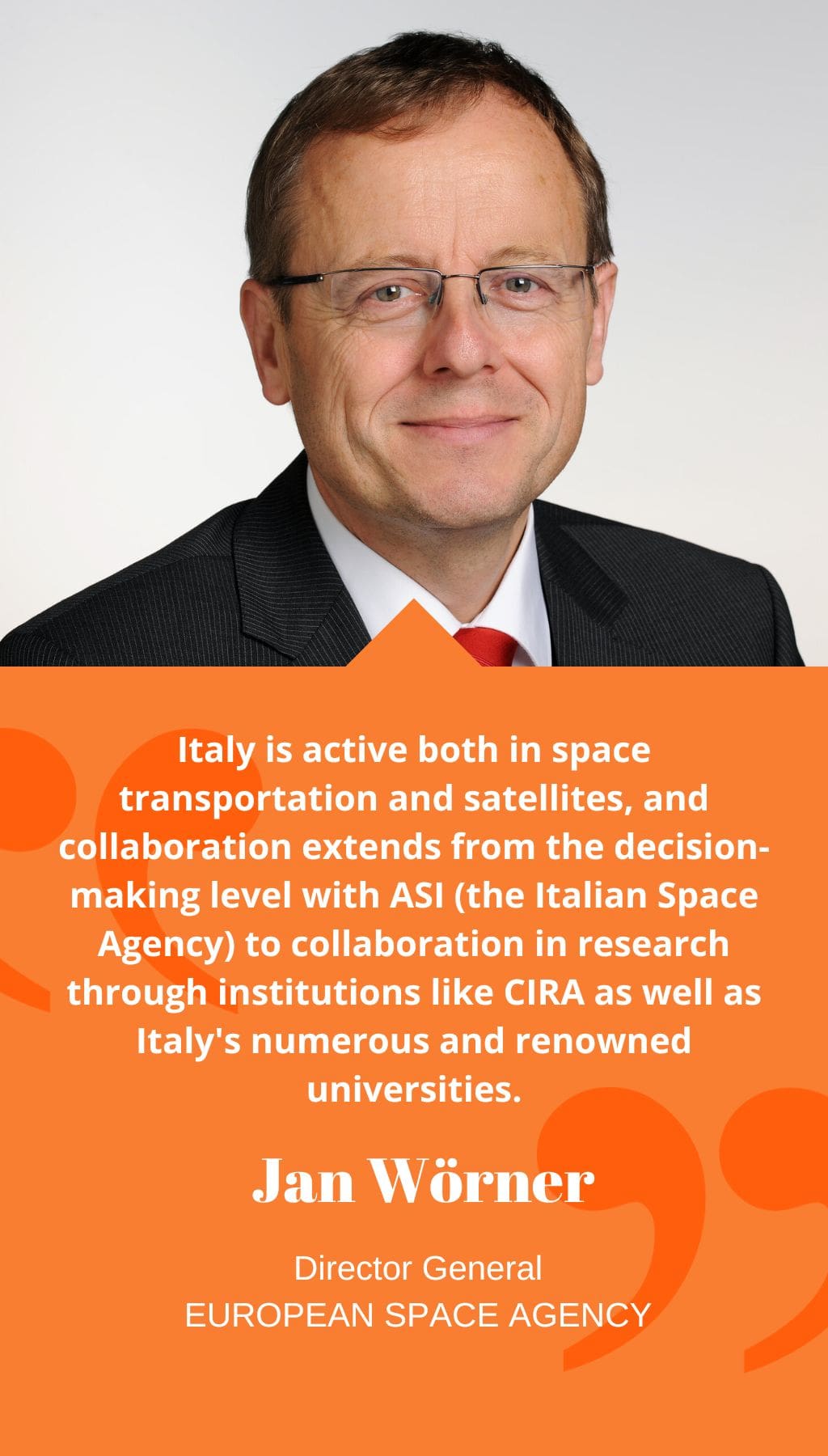
- Italy | 14 February 2018

Can you please provide us with a brief history of ESA and the reasons for its establishment in 1975?
ESA’s history can be traced back to the early 1950s when the Western European nations decided to establish two separate agencies dealing with space activities. One agency, ELDO (European Launch Development Organization), was specifically concerned with developing a launch system, while the other, ESRO (European Space Research Organization), was a precursor to the European Space Agency. ESRO was established in 1964, but soon after, the founding member states realized that it would be better to have a single European Space Agency. Therefore, ESA was founded with the signature of the ESA Convention in 1975, which merged ESRO with ELDO.
In what ways does ESA support the European space community?
ESA’s programs are designed to explore Earth, its immediate space environment, our Solar System, and the Universe. They also aim to develop satellite-based technologies and services while promoting European industries. ESA’s activities aim to ensure European autonomy in accessing and using space, maximize the integration of space into European society and economy, and foster the European space sector by supporting research, innovation, and entrepreneurship for growth and jobs. Education and knowledge are also high on ESA’s agenda. Additionally, ESA’s policy respects the principle of ‘fair return,’ where the share of a country in terms of contracts received must match the contribution paid to the Agency by that member state.
How is ESA’s budget allocated between mandatory and optional funding?
ESA’s mandatory activities, such as scientific programs and the general budget, are funded by a financial contribution from all member states. In addition, each member state decides in which optional program they wish to participate and the amount they want to contribute. Approximately 15% of ESA’s budget is allocated for mandatory programs, and the rest is for optional programs.
What part does ESRIN play in ESA’s wider operations?
ESRIN is ESA’s Centre for Earth Observation, and its impact goes far beyond Europe as it supplies satellite data to organizations and research institutions worldwide. This data is used to provide services to critical European infrastructure, such as banking and finance, water and wastewater systems, transportation, and food and agriculture, making them secure and profitable. Additionally, ESRIN’s information systems play a vital role in the functioning of the whole Agency.
How does Italy’s space industry compare to that of other jurisdictions?
Every member state’s space industry has its own characteristics. As ESA’s third biggest contributor, Italy has a strong space industry, including leading industrial prime contractors such as Avio and Thales Alenia Space. Italy is active both in space transportation and satellites, and collaboration extends from the decision-making level with ASI (the Italian Space Agency) to collaboration in research through institutions like CIRA as well as Italy’s numerous and renowned universities.
How do you see Italy’s space industry developing?
ESA strives to strengthen the position of the European space sector in the global market, and Italy is a significant player in this respect. One of ESA’s core goals is to foster a globally competitive European space sector and maximize the integration of space within the wider society and economy.
What are ESA’s key objectives over the next three to five years?
ESA’s guiding visions for the 2016 Council at Ministerial Level are Space 4.0 (the fourth era of space activities) and United Space in Europe. The underlying conditions for Europe to achieve the best outcome for its nations and citizens and to make Europe successful in space, and the European space sector successful in Europe and worldwide, are European spirit, identity, and cohesion. This can only be achieved through concerted efforts aimed at maximizing the integration of space into European society and economy and strong science and technology foundations.














